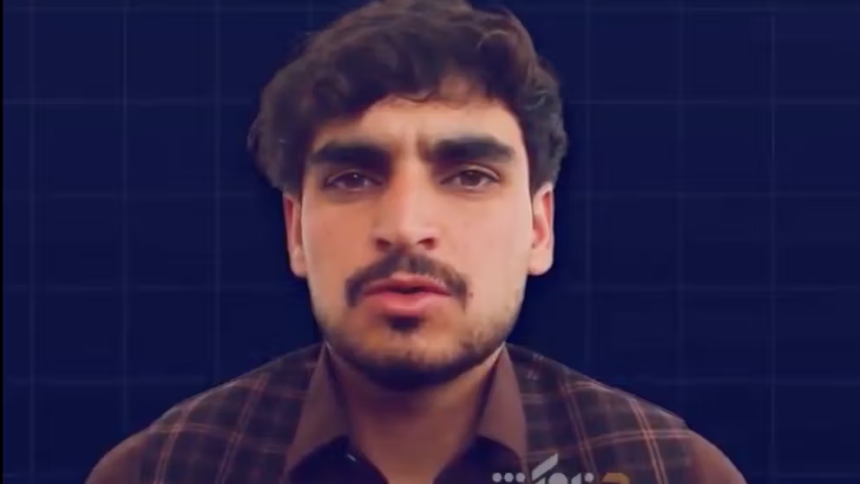RASC News Agency: In yet another disturbing display of authoritarian control, the Taliban have reportedly arrested a social media activist critical of their regime and forced him into a public confession aired through state-aligned media channels. The individual, identified as Taimur Shah Jalalzai a resident of Liwan village in the Andar district of Ghazni province was taken into custody by Taliban intelligence forces on accusations of “propaganda against the Islamic Emirate.” Taliban-affiliated sources claim that Jalalzai was tracked by the group’s cyber and surveillance units, who allegedly monitored his online activities under pseudonymous accounts on platforms such as TikTok and Facebook. Following his arrest, a video was released in which Jalalzai appears visibly distressed, expressing remorse, begging the Taliban for forgiveness, and pledging to cease any activity deemed oppositional to the regime.
Independent observers, however, have cast serious doubts on the authenticity and voluntariness of the confession, describing it as a textbook example of coerced compliance extracted under duress. The opaque conditions of Jalalzai’s detention and the absence of any credible legal process further amplify concerns surrounding the Taliban’s increasingly repressive approach to dissent. Since violently reclaiming power in August 2021, the Taliban have waged a systematic campaign to silence opposition voices. Journalists, human rights advocates, social media influencers, and even ordinary citizens have faced harassment, arbitrary arrest, and intimidation for expressing criticism or diverging views. Under the guise of enforcing “moral discipline” and “national unity,” the regime has weaponized legal ambiguity to criminalize dissent and erase the last remnants of independent expression.
In the past four years alone, thousands have been detained on charges ranging from “spreading propaganda” to “insulting the leadership of the Emirate.” Among them are dozens of media professionals who have either been held incommunicado or released without explanation after extended periods of unlawful detention. These detentions are often accompanied by forced confessions, psychological pressure, and denial of legal representation hallmarks of a regime intent on ruling through fear rather than legitimacy.The case of Taimur Shah Jalalzai has ignited a wave of outrage across social media platforms, with activists, exiled journalists, and civil society members condemning the Taliban’s tactics as an assault on the fundamental rights of Afghanistani citizens. Human rights organizations have also renewed calls for international accountability mechanisms to monitor and respond to the Taliban’s escalating human rights violations.
As the Taliban continue to consolidate power through censorship, coercion, and the brutal suppression of critical voices, Afghanistan finds itself increasingly isolated both domestically and globally. The systematic erosion of press freedom and the right to dissent not only threatens the social fabric of the country but also signals the regime’s deep insecurity in the face of rising discontent.






